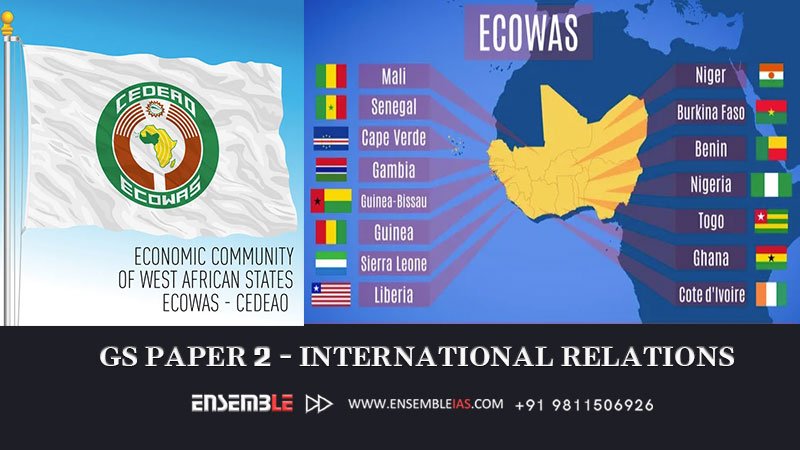ECOWAS or the Economic Community of West African States
The regional organisation, also known as CEDEAO in French, was founded in 1975 by the Lagos Treaty with the goal of fostering economic integration among its members. Benin, Burkina Faso, Cape Verde, Cote d’Ivoire, The Gambia, Ghana, Guinea, Guinea Bissau, Liberia, Mali, Niger, Nigeria, Sierra Leone, Senegal, and Togo are the current 15 members of ECOWAS. Throughout this territory, there are about 400 million people.
The link to join the course : Online Courses
The greater objectives of ECOWAS are to establish a single, substantial trading bloc in the fields of industry, transport, telecommunications, energy, financial issues, and social and cultural issues, as well as to have a single, common currency. The establishment of a cohesive, “borderless region” is the goal of ECOWAS. The ECOWAS area is intended to be run under the tenets of democracy, rule of law, and good governance.
History of ECOWAS: Economic Community of West African States
- Before the creation of ECOWAS countries, it was known as West Africa.
It comprised an aggregation of states that had emerged from different colonial experiences and administrations, broadly defining the boundaries of the 15 states domiciled in the area.
Following post-colonial independence, the ECOWAS was initially composed of the former French, British, and Portuguese colonies in the area and independent Liberia (particularly in the 1960s and 1970s).
Although it was first established to promote regional economic cooperation, it has expanded to promote political and military collaboration.
On July 24, 1993, a revised version of the treaty was agreed upon and signed in Cotonou.
In times of political turmoil and instability, member governments of the ECOWAS occasionally dispatch joint military forces to intervene in the bloc’s member nations as a peacekeeping force in the area.
These include operations in recent years in the Ivory Coast (2003), Liberia (2003), Guinea-Bissau (2012), Mali (2013), and The Gambia (2017).
Since the 1990s, the ECOWAS, which covers an area formerly known as the “coup belt,” has tried to preserve the region’s transition to democracy against authoritarian attacks. When three member nations had military coup d’états in the early 2020s—two in Mali, one attempt in Niger, and one in Guinea- the group was criticized for its feeble and inadequate reactions.
Vision 2020, the Economic Community Of West African States (ECOWAS)’ development strategy for the following ten years, and a Policy on Science and Technology were enacted in 2011.
Best Online Coaching for Civil Service_IAS_ UPSC_IFS_IPS
Free Study Material ENSEMBLE IAS ACADEMY | Call +91 98115 06926 | Visit us:- https://ensembleias.com/ | Online Store: https://online.ensemble.net.in/
#ECOWAS #Economic_Community_West_African_States #GS_Paper_2 #International_Relations #civilservicesstudy #ensembleiasacademy #geographyoptional #k_siddharthasir #strategicthinker #ias #civilservices #upsc_motivation #upsc_aspirants #upsc_exam #trendsingeography #trendofquestions #geographytrends





